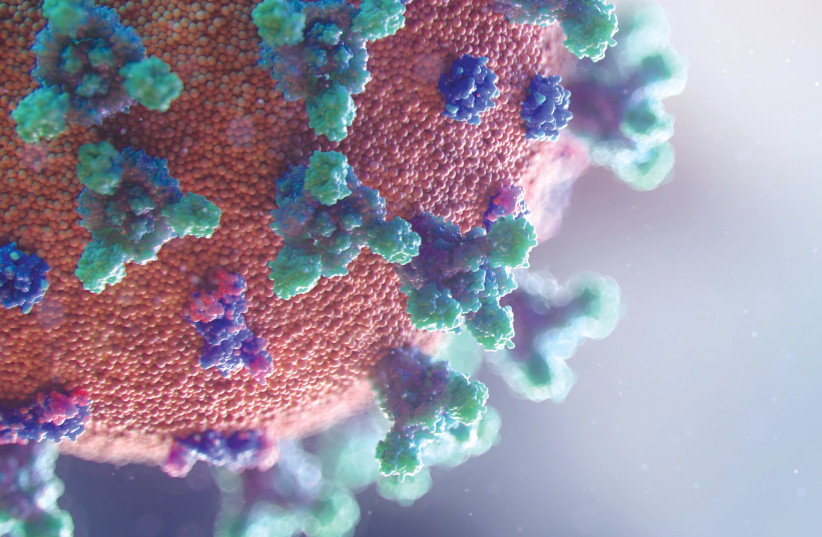The variants of SARS-CoV-2, the novel coronavirus behind COVID-19, may have developed a method to bypass human interferons, according to a new study.
This ability seems to have helped it become more infectious and severe as it continues to infect people worldwide.
The findings of the study were published in the peer-reviewed academic journal Proceedings of the National Academy of Sciences USA (PNAS).
<br>What are interferons?
Interferons are a vital part of the innate immune system and as such, help fight off viruses from infecting the body.
However, this is an oversimplification of their role and nature.

Interferons are a type of protein that gets released by cells after viruses are detected.
Here, these proteins take on a signaling role, sending messages to cells throughout the immune system to push its defenses into action, rallying immune cells, macrophages and the rest of the body's defenses into fighting back and eliminating whatever disease has crossed its path.
It is due to this ability to interfere with a virus's replication that the proteins were given the name interferons.
To better understand what interferons do, and the implications of this study, it is also important to understand the innate immune system.
The immune system itself is made of two parts: The innate immune system and the adaptive immune system.
The former refers to the general immune system that deals with foreign pathogens that enter the body. It tends to consist of proteins like interferons and other defense cells along with the skin and mucus membrane.
This part of the immune system is very important because it triggers a number of reactions, such as inflammation, which makes more immune system cells swarm to the infected area to take out the disease. It is the proteins like interferons that are responsible for this being possible.
It's the adaptive immune system that kicks in should the innate immune system not be able to get the job done. This is where we see antibodies and cells like T cells come into play, identifying whatever is causing the disease and targeting it as well as remembering it for the future. That way, the body can stay immune even after antibodies fade.
In other words, it's what helps put the immune in immune system, since it keeps the body from getting sick with the same thing again. Though, of course, this isn't perfect and doesn't always last.
Both of these systems are needed to help each other out. And given the widespread nature of the COVID-19 pandemic, the role both sides of the immune system plays is a subject of considerable interest.
<br>The study
So with COVID-19 and its many variants having become so widespread that it has infected hundreds of millions of people worldwide, it became apparent to scientists that it had been developing means to counter and evade the antibodies and T cells of the adaptive immune system.
But what about the innate immune system?
There are several types of interferons in the body, 17 of which were examined by the researchers to see how they interacted with the many variants.
Some of them were shown to be effective, strongly inhibiting the spread of SARS-CoV-2. But with the later variants, that wasn't the case.
Specifically, with Omicron, one of the most infectious and widespread individual diseases in human history, the coronavirus became a lot harder for interferons to help take down.
To put it more simply, more interferons were needed to help interfere with the spread of Omicron compared to other variants and strains from the start of the coronavirus pandemic.
The implications behind this finding highlight a fixation of research on coronavirus variants and how they fought the adaptive immune system, specifically with focuses on mutations in the virus's Spike protein. However, this study highlights the important role the innate immune system plays and how interferons can essentially help shape the fight against these viruses.
And this importance can also point to a possible solution in the form of interferon-based therapies and treatments.
But it also shows how much SARS-CoV-2 has evolved and adapted since the pandemic began, showing how important it is to continue to study and assess the virus and its emerging variants as the pandemic continues.
